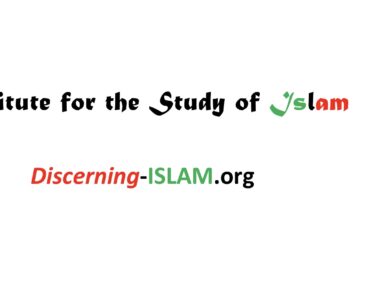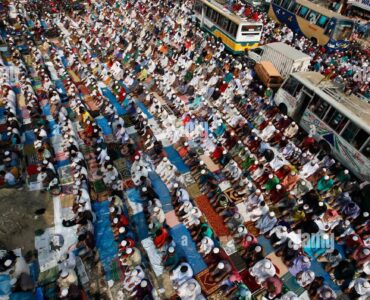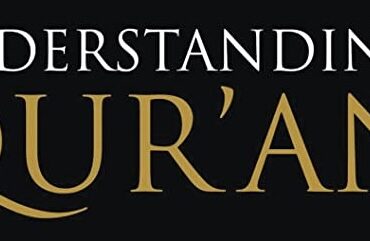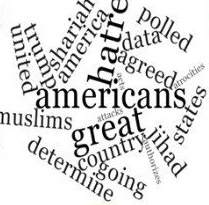
Islamic Reform
Muslim voices of reform, scholars (ulama, religious scholars, and lay intellectuals), and tele-preachers represent a diverse collection of Muslim men and women, laity and clergy, professionals, scholars, and popular preachers. Their audiences extend from North Africa to the Gulf States, South to Central and Southeast Asia, and Europe to America. These Muslim reformers are significant not only because of their ideas and orientations but also because they are debunking entrenched perceptions that: Islam is medieval, static, and incapable of change; Islam is a violent religion; Islam degrades women; Islam and democracy are incompatible; Muslims do not speak out against religious extremism and terrorism; Muslims reject religious pluralism and interfaith dialogue; and Muslims cannot be loyal citizens in non-Muslim societies.
Reformers, both neo-traditionalist and modernist, can be found at Islamic institutes and universities in the Muslim world and the West, and in non-governmental organizations that address major social and economic issues, from poverty and illiteracy to gender relations and the environment. Reformist ideas are disseminated in books and articles, audios, videos and DVDs, in newspaper editorials, in muftisʼ fatwas, and on the Internet. As in the history of the Christian Reformation, change in Islam is not limited to debates on theology and law but also involves struggles in politics and society.
In the last decade of the twentieth century and continuing into the twenty-first, a second struggle, often obscured by the threat and impact of global terrorism has emerged: What is the meaning and relevance of Islam in a rapidly changing and globalized world, characterized by unresolved religio-cultural issues and deep-seated political problems? Textual criticism, interpretation, reinterpretation and debate over the meaning of the Qur’an and Prophetic traditions has birthed a new debate over the role of religion in state and society. This resurgence has yielded a variety of questions, from the nature of the state and Islamic law to the place of democracy, pluralism, gender and religious and ethnic minority rights and relations.
Fundamental to the many questions regarding religious interpretation, authority, and the nexus between tradition and modernity, are two fundamental issues: “Whose Islam?” and “What Islam?” Religious leaders and intellectuals have played a critical role in this struggle for the soul of Islam, or perhaps more accurately Islamic reform. They have focused on the authority for interpretations and answers to those questions that enable Muslims to face the many challenges of the contemporary world. Historically, caliphs and sultans were the protectors of Islam and the ulama. In the second half of the twentieth century, however, rulers as diverse as monarchs in Saudi Arabia, Morocco and Jordan, military leaders (Muammar Qaddafi of Libya, Mohammed Zia-ul-Haq of Pakistan, and Jafar al Numayri of Sudan), ex-military leaders (Anwar Sadat of Egypt), and Soeharto in Indonesia and religious leaders and students (the Ayatollah Khomeini and his successors and Afghanistan’s Taliban) used Islam to enhance their legitimacy and mobilize popular support. While some wished to continue the tradition of clerical leadership, many if not most reformist voices were non-clerical Islamically and Western educated scholars from diverse contexts. Many, though not all, affirm the need for a more inclusive religious scholar and expert, emphasizing that the ulama are not the sole or primary guardians of the Islamic faith. This view sees religion through a multifaceted lens demanding that contemporary problems be met with contemporary solutions, utilizing economics, science, medicine, etc., critical components of this worldview, some of which lie beyond the ulama’s realm of traditional expertise.
Equally as central to the question of Islamic reform as “Whose Islam?” is the question of “What Islam?” Which interpretation of Islam? Like all major religious traditions, Islam is subject to a variety of interpretations as the product of text and context, sacred scriptures and lived histories, divine revelation and human interpretation. The relationship of tradition to modernity continues to animate the efforts of those who want to both draw inspiration from the past and develop new responses that make sense for the world around them. Must things change? How much change is possible or permissible? What is the Islamic rationale for change? These questions have intensified in the post-9/11 landscape and an influential group of vibrant Muslim intellectuals and religious leaders has emerged to deal with them. They stress that Islam is inherently dynamic and that reinterpretation and reform are critical in responding to the challenges posed by religious extremism. In Islamic institutes and universities, at academic and religious conferences, and even within parliaments and governments across the world, reformists have spearheaded a process of change, dealing with new, contemporary questions, issues and contexts and debunking entrenched stereotypes.
Yet, somehow, all of this must be rolled up, thought out, and an answer given: How does a “reformed” Islam answer the question in regards to a religion that seeks world domination, governed by Shari’a (Islamic Law), which ends with a final World War for salvation, known as Armageddon.
Islamic Reform
803 – 034
Home
Last Updated: 04/2022
See COPYRIGHT information below.



